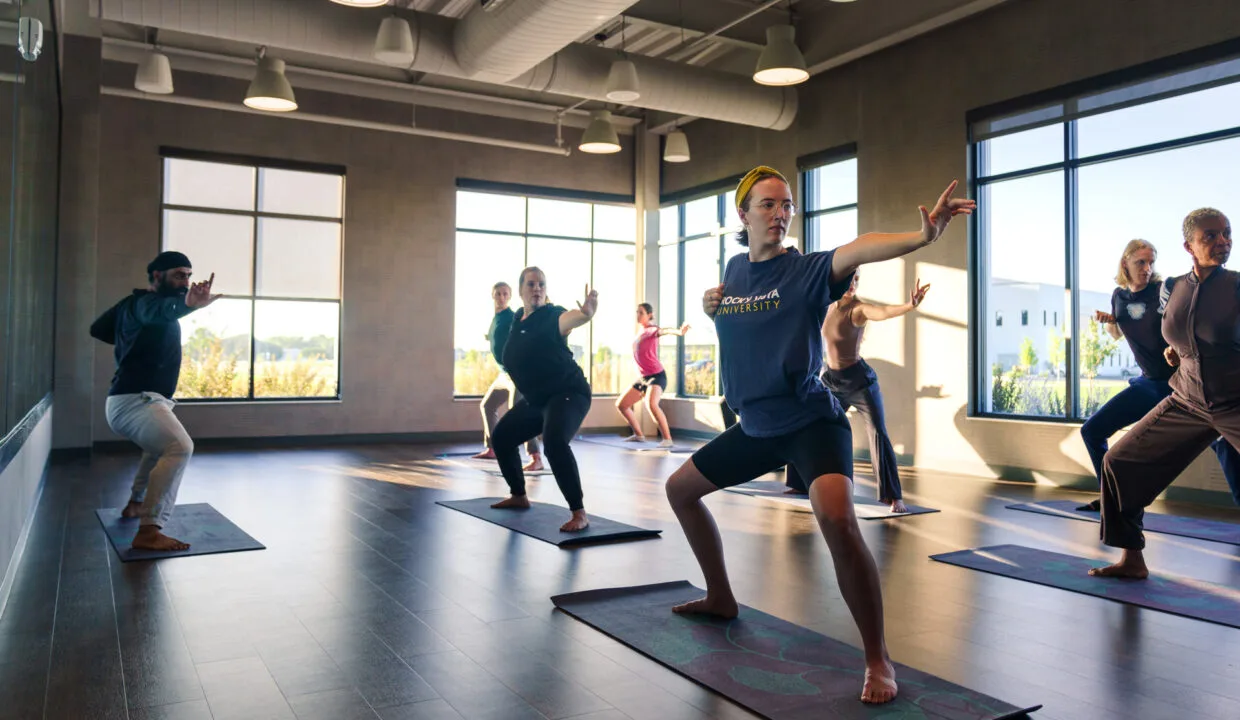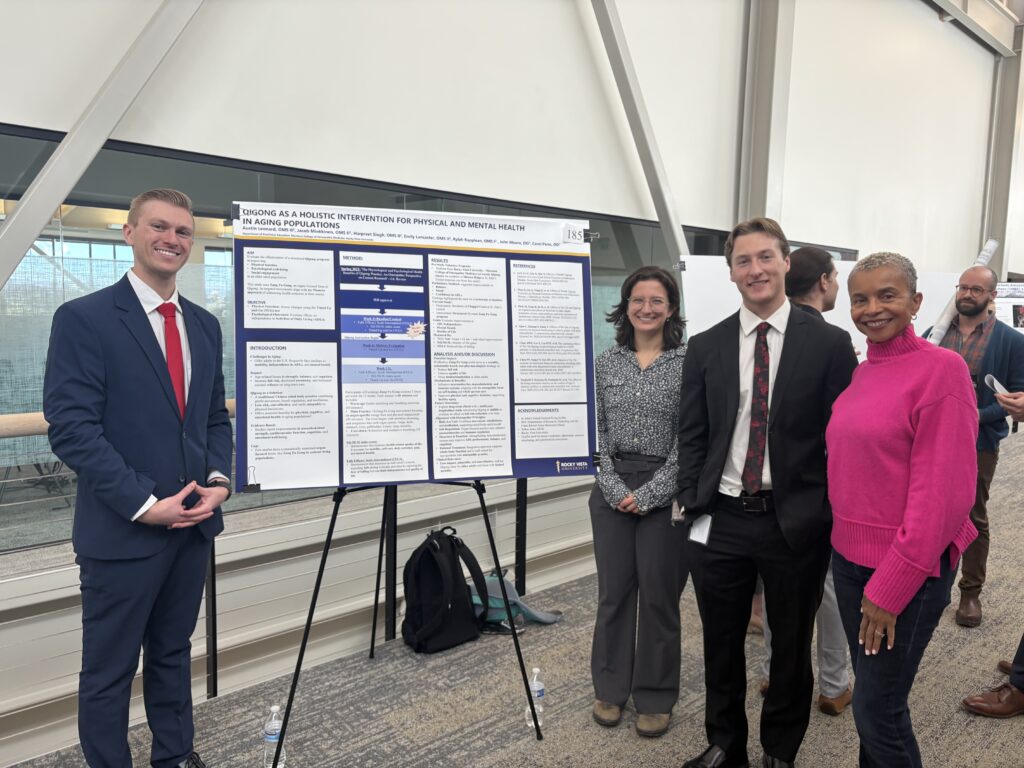
Students and Faculty Partner to Study Qigong’s Role in Mobility and Well-Being
By: SD Austin Leonard, Dr. John Moore, DO, and Dr. Carol Penn, DO
A Student-Led Study Rooted in Compassion and Collaboration
A team of students and faculty from Rocky Vista University Montana College of Osteopathic Medicine (RVU-MCOM) is studying how an ancient Chinese practice could support mobility, balance, and well-being among older adults. Their project explores Qigong, a traditional mind-body discipline, as a potential tool for healthy aging and integrative osteopathic care.
The study, conducted at St. John’s United Assisted Living Facility in Billings, Montana, is led by second-year medical students Austin Leonard, Jacob Minkkinen, Harpreet Singh, and Emily Lancaster under the mentorship of Carol Penn, DO, and Dean John Moore, DO.
Together, the team is investigating Zang Fu Gong, a form of Qigong that emphasizes organ-targeted movements consistent with osteopathic principles of treating the body as an interconnected whole. Participants aged 55 and older take part in twice-weekly sessions over 12 weeks, designed to improve strength, confidence, and independence in daily activities.
Building on Promising Early Results
Early volunteer-led sessions at St. John’s showed noticeable improvements in residents’ mood, stability, and overall engagement, inspiring the launch of this structured, data-driven study. These encouraging results inspired the team to pursue a data-driven research project to better understand Qigong’s impact on physical and emotional health.
To measure outcomes, the team uses validated assessment tools including:
- EQ-5D-5L index – capturing quality of life and well-being
- Timed Up and Go (TUG) test – assessing mobility and balance
- Falls Efficacy Scale-International (FES-I) – evaluating confidence and fear of falling
Supported by a Compassionate Community Grant

The project recently received a $6,500 Compassionate Community Grant from the American Association of Colleges of Osteopathic Medicine (AACOM). The grant program funds innovative, compassion-driven projects that advance belonging, service learning, and community health within osteopathic medical education.
*Pictured in this photo from left to right: Austin Leonard OMS II, Emily Lancaster OMS II, Jacob Minkkinen OMS II, & Dr. Carol Penn, DO.
“This grant allows us to bring compassionate, evidence-based practices to the local community,” said Austin Leonard, OMS II. “It’s exciting to merge ancient traditions with modern osteopathic research in a way that directly benefits older adults.”
Integrating Tradition with Osteopathic Innovation
By combining ancient healing traditions with modern osteopathic research, the RVU-MCOM team aims to develop a scalable, community-based approach to enhancing quality of life and independence among older adults.
“This study truly represents the osteopathic philosophy of treating the whole person—mind, body, and spirit,” said Dr. Penn. “Qigong’s gentle, integrative movements align beautifully with our principles of preventive and holistic care.”
About Qigong
Qigong (pronounced chee-gong) is a centuries-old Chinese practice combining gentle movement, meditation, and breath control. Often referred to as a form of “moving meditation,” Qigong is known for improving balance, flexibility, and mental clarity, making it especially beneficial for older adults and individuals recovering from illness or injury.
Learn more about osteopathic medicine and our DO programs by visiting our Doctor of Osteopathic Medicine overview.